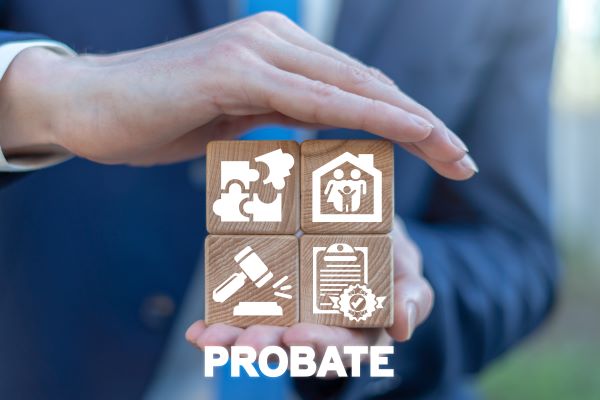
Navigating probate in Florida can be complex, especially regarding the distribution of a deceased person’s assets. Florida Statute 733.805 provides a detailed hierarchy for using assets to satisfy debts, administrative expenses, and bequests, ensuring an orderly process for settling an estate.
Florida Statute: 733.805 provides:
733.805 Order in which assets abate.—
(1) Funds or property designated by the will shall be used to pay debts, family allowance, exempt property, elective share charges, expenses of administration, and devises, to the extent the funds or property is sufficient. If no provision is made or the designated fund or property is insufficient, the funds and property of the estate shall be used for these purposes, and to raise the shares of a pretermitted spouse and children, except as otherwise provided in subsections (3) and (4), in the following order:
(a) Property passing by intestacy.
(b) Property devised to the residuary devisee or devisees.
(c) Property not specifically or demonstratively devised.
(d) Property specifically or demonstratively devised.
 (2) Demonstrative devises shall be classed as general devises upon the failure or insufficiency of funds or property out of which payment should be made, to the extent of the insufficiency. Devises to the decedent’s surviving spouse, given in satisfaction of, or instead of, the surviving spouse’s statutory rights in the estate, shall not abate until other devises of the same class are exhausted. Devises given for a valuable consideration shall abate with other devises of the same class only to the extent of the excess over the amount of value of the consideration until all others of the same class are exhausted. Except as herein provided, devises shall abate equally and ratably and without preference or priority as between real and personal property. When property that has been specifically devised or charged with a devise is sold or used by the personal representative, other devisees shall contribute according to their respective interests to the devisee whose devise has been sold or used. The amounts of the respective contributions shall be determined by the court and shall be paid or withheld before distribution is made.
(2) Demonstrative devises shall be classed as general devises upon the failure or insufficiency of funds or property out of which payment should be made, to the extent of the insufficiency. Devises to the decedent’s surviving spouse, given in satisfaction of, or instead of, the surviving spouse’s statutory rights in the estate, shall not abate until other devises of the same class are exhausted. Devises given for a valuable consideration shall abate with other devises of the same class only to the extent of the excess over the amount of value of the consideration until all others of the same class are exhausted. Except as herein provided, devises shall abate equally and ratably and without preference or priority as between real and personal property. When property that has been specifically devised or charged with a devise is sold or used by the personal representative, other devisees shall contribute according to their respective interests to the devisee whose devise has been sold or used. The amounts of the respective contributions shall be determined by the court and shall be paid or withheld before distribution is made.
(3) Section 733.817 shall be applied before this section is applied.
(4) In determining the contribution required under s. 733.607(2), subsections (1)-(3) of this section and s. 736.05053(2) shall be applied as if the beneficiaries of the estate and the beneficiaries of a trust described in s. 733.707(3), other than the estate or trust itself, were taking under a common instrument.
Asset abatement refers to the order in which a decedent’s assets are used to pay off debts, cover administrative expenses, and fulfill bequests. The statute prioritizes assets designated by the will first. For instance, if the will specifies a particular bank account to cover debts and expenses, these funds are utilized initially. Suppose this account holds $50,000, but the total debts and expenses amount to $60,000; the remaining $10,000 must be covered by other estate assets.
When the designated funds are insufficient or nonexistent, the estate’s assets are used in a specific order. First, property that would pass by intestacy—meaning assets inherited by next of kin when there is no will—is used to cover the shortfall. For example, if the decedent did not leave a will and the designated funds fall short, the property inherited by the spouse or children will be used to pay off the remaining debts.
Next in line are the assets left to beneficiaries in the residuary clause of the will. For example, if the will states, “I leave the rest of my estate to my daughter,” and there are still debts to be paid, the assets meant for the daughter will be used next. Following this, property that is not specifically or demonstratively devised is used. These are general bequests not tied to specific assets, such as a clause stating, “I leave $10,000 to my friend John,” without specifying the source.
Finally, property that is specifically or demonstratively devised is used. These are specific assets or amounts clearly identified in the will, like “I leave my 1965 Mustang to my nephew.” Such bequests are the last to be abated.
Special rules apply to demonstrative devises and spousal rights. If a demonstrative devise (a general bequest paid from a specific source) fails or is insufficient, it is treated as a general devise. For example, if the will states, “I leave $10,000 from my savings account to my niece,” but the account only has $5,000, the remaining $5,000 is treated as a general bequest. Additionally, devises to a surviving spouse given in lieu of statutory rights do not abate until other devises of the same class are exhausted. For instance, if the will leaves a house to the surviving spouse instead of her elective share, the house will not be sold to pay debts until other similar assets are used up.
Generally, devises abate equally and ratably without preference between real and personal property. However, if a specific devise is used or sold by the personal representative, other devisees must contribute to compensate for this loss, as determined by the court.
If you need help with a Probate administration our office would love to hear from you. We handle hundreds of estates a year throughout the State of Florida and we offer free, no obligation consultations.
Brice Zoecklein, Esq.
813-501-5071
Disclaimer: The information contained in this blog/website is for informational purposes only and provides general information about the law but not specific advice. This information should not be used as a substitute for advice from competent legal counsel as laws change and the facts in your specific case need to be analyzed.
















